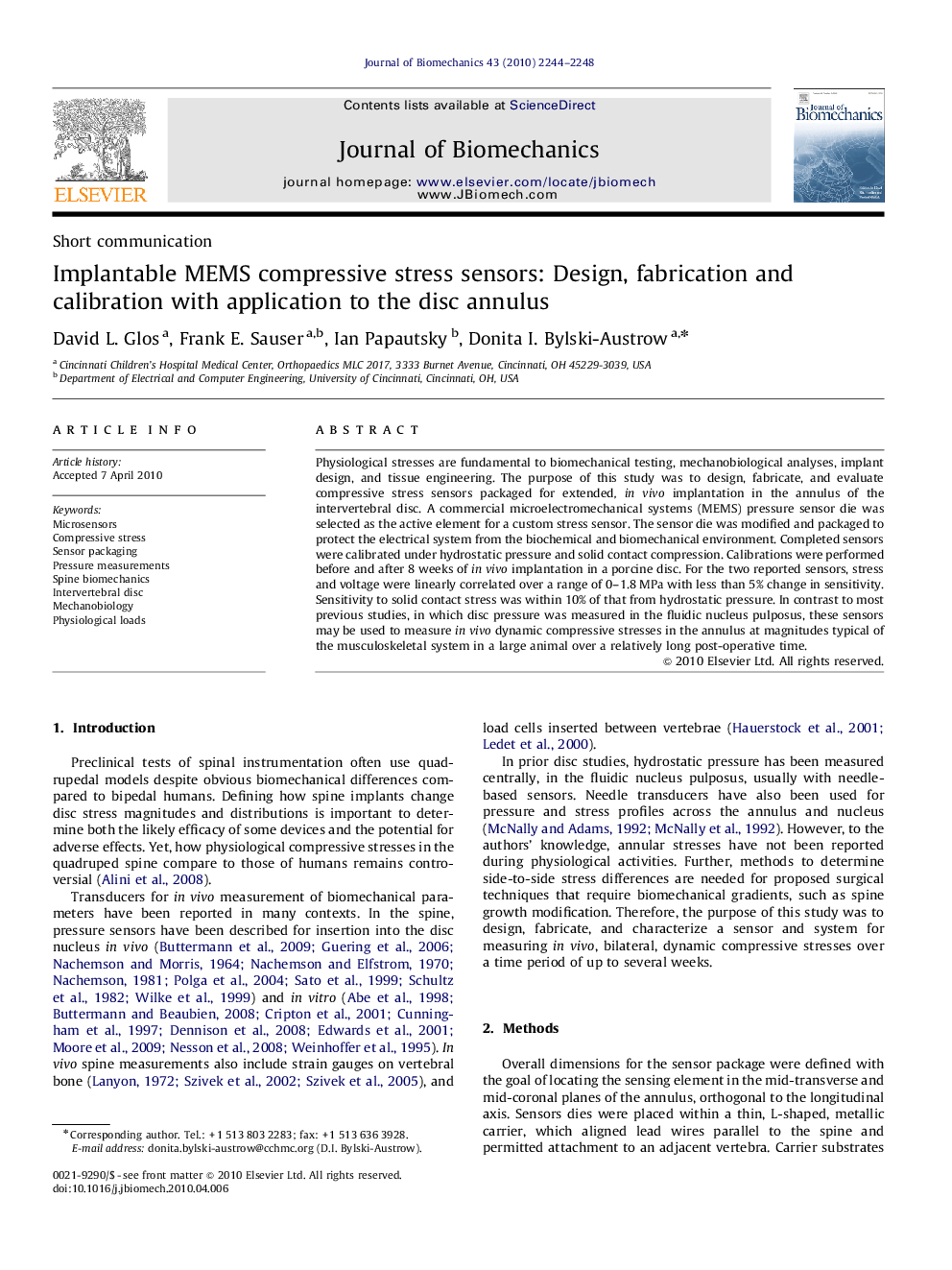| Article ID | Journal | Published Year | Pages | File Type |
|---|---|---|---|---|
| 873747 | Journal of Biomechanics | 2010 | 5 Pages |
Physiological stresses are fundamental to biomechanical testing, mechanobiological analyses, implant design, and tissue engineering. The purpose of this study was to design, fabricate, and evaluate compressive stress sensors packaged for extended, in vivo implantation in the annulus of the intervertebral disc. A commercial microelectromechanical systems (MEMS) pressure sensor die was selected as the active element for a custom stress sensor. The sensor die was modified and packaged to protect the electrical system from the biochemical and biomechanical environment. Completed sensors were calibrated under hydrostatic pressure and solid contact compression. Calibrations were performed before and after 8 weeks of in vivo implantation in a porcine disc. For the two reported sensors, stress and voltage were linearly correlated over a range of 0–1.8 MPa with less than 5% change in sensitivity. Sensitivity to solid contact stress was within 10% of that from hydrostatic pressure. In contrast to most previous studies, in which disc pressure was measured in the fluidic nucleus pulposus, these sensors may be used to measure in vivo dynamic compressive stresses in the annulus at magnitudes typical of the musculoskeletal system in a large animal over a relatively long post-operative time.
